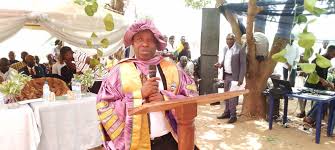Borno state government has, in collaboration with the United Nations Children Fund (UNICEF), established a temporary learning centre for over 4, 000 displaced children from Mafa and Jere local government areas of the state.
The school is expected to host the multitude of children that were forced by Boko Haram insurgency to abandon their classes in the past six years.
Mafa local government area is about 45km away from Maiduguri. It is one of the most attacked areas in Borno State.
Most of the children, aged between three and 15, were either forced out of schools or have not had the opportunity to be enrolled.
Premium Times visited the newly opened IDPs camp schools located in Muna Custom area, at the outskirts of Maiduguri, where the apparently enthusiastic children were seen reciting the English letters and alphabets.
Most of the children who were rescued from remote villages never had any contact with agencies like schools and hospitals.
Lawan Sale, the education secretary of Mafa local government and one of the local education secretaries in charge of managing the schools, said giving the kids a space to learn comes as a huge relief.
“The partnership with UNICEF to develop and educate our displaced children will go a long way in shaping and securing the future of troubled state,” he said.
“We have no excuse other than providing qualitative teachers to teach the thousands of children in the new camp schools, because 95 percent of the children in this school particularly come from Mafa local government which is just 45km away from Maiduguri, Borno state.”
Chester Shaba, an Education Specialist for UNICEF at the Maiduguri field office, said the idea about UNICEF collaborating with the state government to provide temporary learning space for the kids was like an afterthought.
“Initially we did not consider it necessary because the children are in the camp on temporary bases,” he said.
“But now that we see that they will be here for a long time, they need to be provided with all their rights; and one of their basic rights is the right to education.
“We anticipate registering over 4000 children; right now, in just two days, we have reached a target of over 2, 000 children.”
He said while UNICEF takes charge of opening the schools, the state government, through the State Universal Education Board (SUBEB), shoulders the task deploying qualified teachers to assist military educators that initiated the learning center in the first place.
Chester said the need to build more classrooms becomes imperative as the kids have already overcrowded the ten makeshift classrooms.
Jam-packed in the improvised classes and seated on plastic mats that were spread on dusty floors, most of the children, without shoes on their legs, saw themselves as future doctor and teachers.
“I want to be a teacher like her,” Fanna Alhaji said, pointing at her female tutor.



